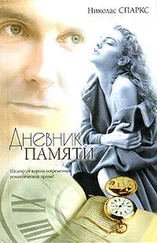Luke was waiting just inside the foyer.
“Are you ready for this?”
“I guess,” she temporized. “It’s different now.”
“I know. I thought about Ira most of the night.”
“Me too.”
He forced a smile, though there wasn’t a lot of energy behind it. “You look terrific, by the way. You’re all grown up.”
“You too,” she said, meaning it. But…
“Why do I feel like we’re going to a funeral?” she asked him.
“Because,” he said, “in a way, we are.”
They entered one of the enormous exhibition rooms at the convention center an hour before noon. It was nothing like she’d expected. At the far end of the room was a stage, surrounded by curtains on three sides; on the right were two long tables on elevated daises, each bearing ten telephones; on the other side stood the podium, no doubt for the auctioneer. A large screen formed the backdrop on the stage, and at the very front stood an empty easel. Approximately three hundred chairs faced the stage in stadium formation, allowing the bidders an unobstructed view.
Though the room was crowded, only a few of the seats were taken. Instead, most of the people wandered the room, examining photographs of some of the most valuable art. The photographs stood on easels along the walls, together with information about the artist, prices of the artist’s work achieved in other auctions, along with estimated values. Other visitors clustered around the four podiums on either side of the entrance, piled high with catalogs that described the entire collection.
Sophia moved through the room, Luke by her side, feeling slightly stunned. Not just because this was once all Ira’s, but because of the collection itself. There were works by Picasso and Warhol, Johns and Pollock, Rauschenberg and de Kooning, exhibited side by side. Some were pieces that she’d never read or even heard about. Nor had the rumors of their value been exaggerated; she gasped at some of the estimates, only to discover that the next set of paintings was worth even more. Through it all, she found herself trying to reconcile those numbers with Ira, the sweet old man who’d written about nothing but the love he still felt for his wife.
Luke’s thoughts seemed to mirror her own, for he reached for her hand and murmured, “There was nothing in his letter about this.”
“Maybe none of this mattered to him,” she said, baffled. “But really, how could it not?” When Luke failed to answer, she squeezed his hand. “I wish we could have helped him more.”
“I don’t know that there was any more that we could have done.”
“Still…”
His blue eyes searched hers. “You read the letter,” he said. “That’s what he wanted. And I think that’s why you and I were meant to find him. Who else would have waited around?”
When the announcement was made for people to take their seats, Luke and Sophia found a couple of empty ones in the back row. From there, it was almost impossible to see the easel, which disappointed Sophia. It would have been great to be able to see some of the paintings up close, but she knew those seats should go to prospective buyers, and the last thing she wanted was for someone to tap her on the shoulder and ask her to move later. A few minutes after that, men and women in suits began to take their seats behind the phones on the elevated tables, and slowly but surely, the overhead lights began to dim as a series of spotlights beamed down to illuminate the stage.
Sophia scanned the crowd, spotting her two art history professors, including her adviser. As the clock approached one, the room slowly grew quieter, the hushed murmur gradually fading out completely when a silver-haired gentleman in an exquisitely tailored suit strolled to the podium. In his hands, he held a folder and he spread it wide before reaching into his breast pocket for his reading glasses. He propped them on his nose, adjusting the pages as he did so.
“Ladies and gentlemen, I’d like to thank all of you for coming to the auction of the extraordinary collection of Ira and Ruth Levinson. As you know, it’s unusual for our firm to host such an event in venues other than our own, but in this case, Mr. Levinson didn’t leave us much choice. It’s also rather unorthodox for the particulars of today’s auction to have remained somewhat vague. To begin, I’d like to explain the rules regarding this particular auction. Beneath each of the seats is a numbered paddle, and…”
He went on to describe the bidding process, but with her thoughts drifting to Ira again, Sophia tuned it out. Only vaguely did she hear the list of those who’d chosen to attend the auction – curators from the Whitney and MoMA, the Tate, and countless others from cities overseas. She guessed that most of the people in the room were representatives of either private collectors or galleries, no doubt hoping to acquire something extremely rare.
After the rules were outlined and certain individuals and institutions thanked, the silver-haired gentleman focused the attention of the audience again. “At this time, it is my pleasure to introduce to you Howie Sanders. Mr. Sanders served as Ira Levinson’s attorney for many years, and has prepared some remarks he’d like to share with you as well.”
Sanders appeared then, a bent, elderly figure whose dark wool suit hung off his bony frame. Slowly, he made his way to the podium. There, he cleared his throat before launching into his speech in a voice that was remarkably vigorous and clear.
“We’re gathered here today to participate in an extraordinary event. After all, it is very unusual for a collection of this size and significance to go unnoticed and unremarked upon for so many years. Until six years ago, I suspect that very few in this room even knew of the existence of this collection. The circumstances of its creation – the how, so to speak – were described in a magazine article, and yet I admit that even I, the man who served as Ira Levinson’s attorney for the past forty years, have been astounded by the cultural importance and value of this collection.”
He paused to look up at the audience before going on. “But that is not why I’m here. I’m here because Ira was explicit in his instructions regarding this auction, and he asked me to say a few words to all of you. I confess that this is something I would rather not have been asked to do. Though I am comfortable in a courtroom or in the confines of my office, I am rarely required to face an audience of this nature, where many of you have been charged with the responsibility of securing a specific piece of art for a client or an institution at a price that even I have difficulty comprehending. And yet, because my friend Ira asked me to speak, I now find myself in this unenviable position.”
A few good-natured chuckles were audible from the audience.
“What can I tell you about Ira? That he was a good man? An honest, conscientious man? That he was a man who adored his wife? Or should I tell you about his business, or the quiet wisdom he exuded whenever we were together? I asked myself all these questions in an effort to discern what it was that Ira really wanted me to say to all of you. What would he have said if he, not I, had been standing before you? Ira, I think, would have said this to you: ‘I want all of you to understand.’”
He let the comment hang, making sure he had their attention.
“There is a wonderful quote I came across,” he went on. “It’s attributed to Pablo Picasso, and as most of you probably realize, he’s the only non-American artist whose work will be featured in today’s auction. Years ago, Picasso was quoted as saying, ‘We all know that art is not truth. Art is a lie that makes us realize truth, at least the truth that is given us to understand.’”
Читать дальше











![Николас Спаркс - Каждый вдох [litres]](/books/414723/nikolas-sparks-kazhdyj-vdoh-litres-thumb.webp)
